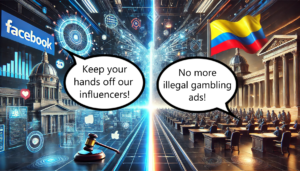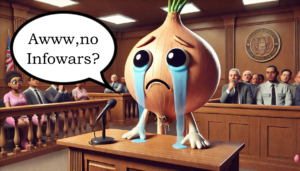When Epic Games (“Epic”) was fined $520 million dollars by the Federal Trade Commission (“FTC”) back in December 2022, $245 million dollars of that fine was due to Epic’s illegal “dark patterns” related to their billing practices. According to the FTC, the “dark patterns” involved intentionally making the purchase feature within Fortnite ambiguous, failing to obtain express consent from parents prior to children making purchases, and, in some cases, restricting a child’s account access when parents complained about unwanted charges appearing on credit card statements. This article will examine the lawsuit, the laws pertaining to dark patterns, and how game developers and service providers can avoid attracting similar liability from competition bodies like the FTC or the Canadian Competition Bureau.
Legal Basis for Complaint
Section 5 of the Federal Trade Commission Act (“FTC Act”), the main consumer protection statute in the US, prohibits unfair or deceptive acts or practices in or affecting commerce.1 The FTC Act specifies that a practice is considered to be unfair if:
- it causes or is likely to cause substantial injury to consumers;
- the injury is not reasonably avoidable by consumers; and,
- the injury is not outweighed by the countervailing benefits to consumers or competition.2
Penalties for engaging in such acts or practices can result in civil penalties up to $50,120 per violation.3
Regarding “dark patterns”, three of the world’s largest corporations – Google, Apple, and Amazon – have previously been fined for their billing practices on the basis of violating the above FTC Act provisions (the “Prior Lawsuits”).
The Prior Lawsuits all had similar facts around the circumstances of their fines. Each company had app stores whereby a user needed to have an account and credit card on file in order to use the app store. The app stores offered free apps for children (“Children’s Apps”), whereby a user could download the app without making a purchase. The Children’s Apps would subsequently offer in-app purchases. The dark patterns occurred because immediately after downloading a Children’s App, there would be a short time period (between 15 – 60 minutes depending on which app store was used), where a child could incur in-app charges simply by pressing a “buy” button within the app, without requiring additional verification or authentication by the cardholder associated with the account.4
The courts in each of the Prior Lawsuits stated that failing to obtain express, informed authorization before incurring charges from children violated Sections 5(a) and 5(n) of the FTC Act, and the companies were fined $19 million, $32.5 million and $70 million, respectively.
Epic’s Billing Practices
Similar to the Prior Lawsuits, Epic has an app store (the “Epic Store”) for PC games where users can either purchase paid games or download free-to-play games that may or may not have in-game purchases available. In order to purchase a paid game or download a free-to-play game, a user must have an Epic Store account (“Epic Account”). The Epic Account will be used whether a player plays an Epic game on PC or a console. In order to make a purchase for a paid game or for an in-game purchase within a free game, a credit card associated with the Epic Account is needed to make the purchase.
The FTC argued that Epic’s billing practices harmed consumers because:
- Epic by default saved users’ credit card information and only provided a small inconspicuous checkbox that stated “Make this a one-time payment. Don’t save my credit card”;5
- The button configuration led accounts to be charged by the press of a single button at unwanted times, for example, while attempting to wake the game from “sleep mode”, while the game was in a loading screen, or by pressing an adjacent button when attempting to view an item;6
- Children would be able to make in-game purchases without entering a PIN or password connected to the credit card associated with the child’s Epic Account;7
- Epic imposed strict limits on refunds, for example, by limiting accounts to a lifetime maximum of three refunds per account8; and,
- Epic sometimes locked accounts or threatened to ban accounts for life if they attempted to dispute unwanted charges.9
Similar to the Prior Lawsuits, it was held that Epic’s billing practices violated the FTC Act and therefore they were required to pay $245 million to the FTC.10
Application to Canada
Section 5 of the FTC Act covers both deceptive billing practices and deceptive marketing practices.11 Canada’s main consumer protection statute, the Competition Act12, differs from the FTC Act in this respect, as the Competition Act has specific sections for deceptive marketing practices (detailed in our previous article link) as well as for deceptive billing practices.
Specifically, the Competition Act expressly prohibits “drip pricing”.13 Drip pricing involves offering a product or service at a price that is unattainable because consumers must also pay additional charges or fees to buy the product or service that are not transparently advertised.14 Penalties for engaging in such practices can result in penalties of up to $10 million for first-time violations, and up to $15 million for each subsequent violation.15
Within the last number of years, the Competition Bureau has imposed heavy fines on companies in the ticketing (StubHub and Ticketmaster) and car rental industries (Avis/Budget, Hertz, Enterprise) for including additional mandatory fees on purchases that were not previously disclosed to consumers.
Conclusion
The fines imposed on Epic for dark patterns highlight the importance of being transparent and providing authorization when it comes to processing transactions online. While some service providers may unintentionally save users’ credit card information, this does not excuse service providers from failing to obtain express authorization when customers make a purchase. As well, for services that may have children making purchases, it is important to ensure that there is a way for parents to provide authorization in order to avoid complaints and unnecessary claims for refunds or chargebacks. If you are a service provider and would like to discuss your service’s billing practices to ensure compliance with consumer protection laws, please feel free to contact zack@gmelawyers.com or jack@gmelawyers.com
2 Ibid at § 45(n).
3 TC Publishes Inflation-Adjusted Civil Penalty Amounts for 2023, Federal Trade Commission, January 6, 2023.
4 Federal Trade Commission v Amazon.com Inc., cv-01038, July 10, 2014 at p22; Federal Trade Commission v Apple Inc, cv-112-3108 at para 4; Federal Trade Commission v Google Inc, cv-122-3237 at para 16.
5 FTC v Epic Games Inc, 192-3202, at para 9 (the “Complaint”).
6 Ibid at para 35.
7 Ibid at para 17.
8 Ibid at para 42.
9 Ibid at para 1.
10 Fortnite Video Game Maker Epic Games to Pay More than Half a Billion Dollars over FTC Allegations of Privacy Violations and Unwanted Charges, Federal Trade Commission, December 19, 2022.
11 The FTC’s Endorsement Guides: What People Are Asking, Federal Trade Commission.
12 R.S.C., 1985, c. C-34.
13 The Competition Act at 74.01(1.1).
14 Drip pricing, Government of Canada, June 24, 2022.
15 Ibid.




